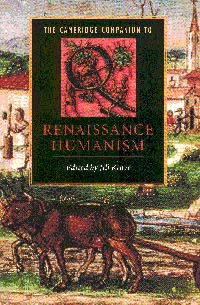Book contents
- Frontmatter
- 1 The origins of humanism
- 2 Classical scholarship
- 3 Humanism in script and print in the fifteenth century
- 4 The humanist reform of Latin and Latin teaching
- 5 Humanist rhetoric and dialectic
- 6 Humanists and the Bible
- 7 Humanism and the origins of modern political thought
- 8 Philologists and philosophers
- 9 Artists and humanists
- 10 Vernacular humanism in the sixteenth century
- 11 The new science and the traditions of humanism
- 12 Humanism and Italian literature
- 13 Humanism and English literature in the fifteenth and sixteenth centuries
- 14 Humanism and seventeenth-century English literature
- A guide to further reading in English
- Biographical index
5 - Humanist rhetoric and dialectic
Published online by Cambridge University Press: 28 May 2006
- Frontmatter
- 1 The origins of humanism
- 2 Classical scholarship
- 3 Humanism in script and print in the fifteenth century
- 4 The humanist reform of Latin and Latin teaching
- 5 Humanist rhetoric and dialectic
- 6 Humanists and the Bible
- 7 Humanism and the origins of modern political thought
- 8 Philologists and philosophers
- 9 Artists and humanists
- 10 Vernacular humanism in the sixteenth century
- 11 The new science and the traditions of humanism
- 12 Humanism and Italian literature
- 13 Humanism and English literature in the fifteenth and sixteenth centuries
- 14 Humanism and seventeenth-century English literature
- A guide to further reading in English
- Biographical index
Summary
In 1576 the Cambridge University praelector in rhetoric, Gabriel Harvey, began his spring series of lectures with an oration which he later published under the title of Ciceronianus. In this speech, he announced his conversion from the superficial Ciceronianism of those who express themselves only in the words and phrases of their master to the more profound Ciceronianism of those who understood the reasoning and expression of his speeches. He advised his audience:
Pay attention not only to the brilliant greenery of words, but more to the ripe fruit of meaning and reasoning ... Remember that Homer [Iliad 1.201] described words as pteroenta, that is, winged, because they easily fly away unless they are kept in balance by the weight of the subject-matter. Unite dialectic and knowledge with rhetoric. Keep your tongue in step with your mind. Learn from Erasmus to combine an abundance (copia) of words with an abundance of matter; learn from Ramus to embrace a philosophy which has been allied to eloquence; learn from Homer's Phoenix to be doers of deeds as well as writers of words.
Harvey planned to devote his lectures to a rhetorical and dialectical analysis of Cicero's oration Post reditum in Senatu. The distinctive humanist contribution to rhetorical education was the use of dialectic and rhetoric together to read classical texts. The precepts of rhetoric and dialectic would inform the reader's observation of the practice of Cicero and Virgil; reading Cicero and Virgil would in turn enrich one's understanding of how to use both words and arguments. The classical authors would also provide a rich store of material for use in new compositions.
- Type
- Chapter
- Information
- The Cambridge Companion to Renaissance Humanism , pp. 82 - 99Publisher: Cambridge University PressPrint publication year: 1996
- 9
- Cited by

